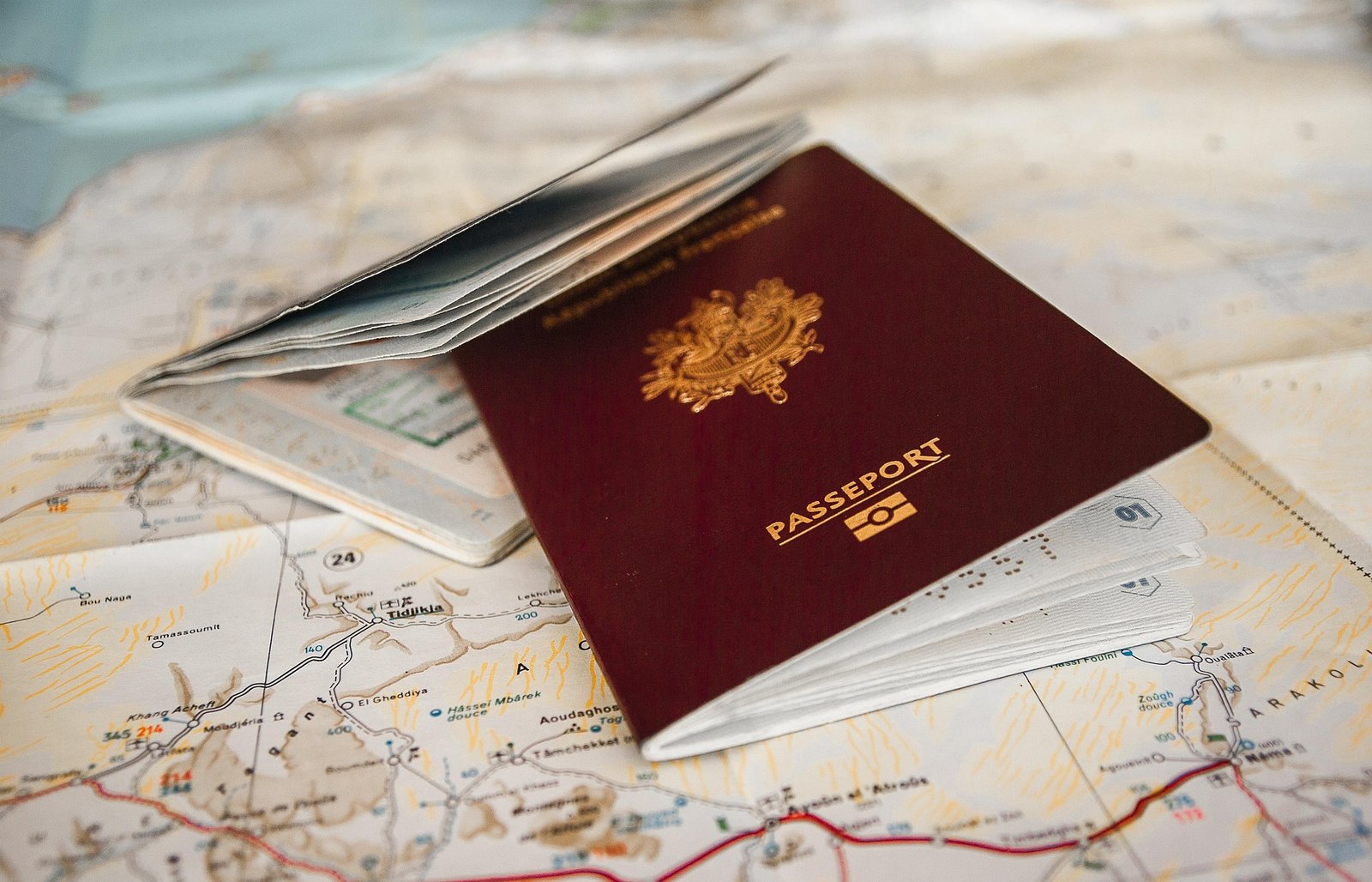If you’re dreaming of spending more than just a quick vacation in Vietnam—think vibrant cities, lush rice fields, or bustling street food scenes—then exploring long term visa options in Vietnam is your first step. Whether you’re a digital nomad, retiree, investor, or worker, Vietnam offers several visa pathways for extended stays. This guide breaks down the best options, their requirements, costs, and processes. Let’s get started!
Why Choose Vietnam for a Long-Term Stay?
Vietnam’s affordable cost of living, rich culture, and growing economy make it a magnet for expats and long-term visitors. From Hanoi’s historic charm to Ho Chi Minh City’s modern buzz, it’s no wonder people want to stay longer. Recent updates to Vietnam’s immigration laws, effective since July 2020, have expanded visa options, including e-visas and longer-term permits, making it easier to settle in. However, Vietnam doesn’t offer a dedicated digital nomad or retirement visa, so you’ll need to navigate other pathways for long-term stays.
Benefits of Long-Term Visas in Vietnam
- Extended Stays: Options range from 6 months to 5 years, with some extendable.
- Affordable Living: Monthly costs average $500–$1,500, depending on lifestyle.
- Economic Opportunities: Investor and work visas open doors to business and employment.
- Cultural Immersion: Live among Vietnam’s vibrant traditions and natural beauty.
Long-Term Visa Options in Vietnam
Vietnam offers several visa types and residency permits for stays beyond the standard 90-day tourist e-visa. Below are the top long term visa options in Vietnam for 2025, based on the latest regulations and sources.
1. 5-Year Visa Exemption Certificate
Overview: The 5-year visa exemption is ideal for Vietnamese overseas (Viet Kieu), their spouses, or children. It allows multiple entries and stays of up to 180 days per visit, with the option to extend up to 6 months without leaving.
Eligibility:
- Vietnamese nationals living abroad or those with Vietnamese ancestry.
- Foreigners married to or children of Vietnamese citizens/overseas Vietnamese.
- Passport valid for at least 6 months beyond entry date.
Requirements:
- Completed application form (NA9 if in Vietnam, or download from the Vietnam Immigration Portal).
- Two 4×6 cm photos (white background, no glasses, straight face).
- Certified copies of documents proving Vietnamese ties (e.g., birth certificate, marriage certificate, or Vietnamese citizenship papers).
- Foreign passport (valid for 6+ months) and a copy of the personal details page.
Process:
- Submit documents to a Vietnam Embassy/Consulate abroad or the Vietnam Immigration Department in Hanoi, Da Nang, or Ho Chi Minh City.
- Processing takes 5–7 working days.
- Receive the certificate, which allows entry without a visa for 5 years.
Cost:
- Application fee: $10–$20 (varies by location).
- Extension fee (if staying beyond 180 days): ~$50, with family sponsorship.
Best For: Viet Kieu, their families, or foreigners with Vietnamese spouses seeking frequent visits or semi-permanent stays.
2. Investor Visa (DT Visa)
Overview: The Investor Visa (DT) is for foreigners investing in Vietnamese businesses. It’s categorized by investment amount and offers stays from 1 to 5 years, with the option to transition to a Temporary Residence Card (TRC).
Types and Validity:
- DT1: ≥VND 100 billion (~$4M), valid up to 5 years.
- DT2: VND 50–100 billion (~$2M–$4M), valid up to 5 years.
- DT3: VND 3–50 billion (~$120K–$2M), valid up to 3 years.
- DT4: <VND 3 billion (~$120K), valid up to 1 year.
Eligibility:
- Foreign investors or representatives of organizations investing in Vietnam.
- Valid business or investment registration certificate.
Requirements:
- Passport (valid for 6+ months).
- Visa Approval Letter from the Vietnam Immigration Department.
- Enterprise/Investment Registration Certificate (certified copy).
- Two 4×6 cm photos and Form NA5 (for embassy) or N1 (for arrival).
Process:
- Secure an Investment Registration Certificate through a Vietnamese company.
- Apply for a Visa Approval Letter via the Immigration Department.
- Submit documents at a Vietnam Embassy/Consulate or on arrival at an airport.
- Processing takes 5–10 working days.
Cost:
- Visa Approval Letter: $420–$630 (via agencies).
- Stamping fee: $25 (single entry), $50 (multiple entry).
- Investment capital: Minimum $120,000 for DT4.
Best For: Entrepreneurs and investors with significant capital aiming for long-term business ventures.
3. Work Visa (LD Visa) and Temporary Residence Card (TRC)
Overview: The LD visa (LD1 and LD2) is for foreigners working in Vietnam, requiring a work permit or exemption. It’s valid for up to 2 years and can lead to a TRC, which extends stays up to 10 years.
Eligibility:
- Foreign workers with a Vietnamese employer or work permit exemption.
- At least 3 years of executive/senior experience or a work contract.
Requirements:
- Work permit or exemption certificate.
- Visa Approval Letter from the employer via the Immigration Department.
- Passport (valid 6+ months, 2 blank pages).
- Two 4×6 cm photos and Form NA5/N1.
- Employer’s recruitment proof (e.g., job ads showing no local hires).
Process:
- Employer applies for a work permit (5–7 days) or exemption.
- Request a Visa Approval Letter from the Immigration Department.
- Apply at a Vietnam Embassy/Consulate or on arrival.
- For TRC, apply onshore at the Immigration Department after entry.
- TRC processing takes 5 working days.
Cost:
- Work permit: $50–$100.
- Visa stamping: $25–$50.
- TRC fee: $145–$165 (1–2 years).
- Agency fees (optional): $200–$500.
Best For: Professionals employed by Vietnamese companies or multinationals.
4. Business Visa (DN Visa)
Overview: The DN visa is for business activities (e.g., meetings, partnerships) but not employment. It’s valid for up to 1 year with multiple entries, though work requires a separate permit.
Eligibility:
- Foreigners engaging in business with Vietnamese entities.
- Sponsorship by a Vietnamese company.
Requirements:
- Visa Approval Letter from a sponsoring company.
- Passport (valid 1+ month beyond visa expiry).
- Two 4×6 cm photos and Form NA5/N1.
Process:
- Secure a sponsor to obtain a Visa Approval Letter.
- Apply at a Vietnam Embassy/Consulate or on arrival.
- Processing takes 5–7 days.
Cost:
- Approval letter: $420 (6 months), $630 (1 year).
- Stamping fee: $95 (6 months), $135 (1 year).
Best For: Short-term business visitors or those testing the market before investing.
5. Dependent Visa (TT Visa)
Overview: The TT visa is for spouses, children, or dependents of foreigners with valid work or investor visas. It’s valid for up to 1 year and can lead to a TRC.
Eligibility:
- Spouses, children under 18, or parents of LD/DT visa holders.
- Sponsorship by the primary visa holder.
Requirements:
- Proof of relationship (e.g., marriage or birth certificate).
- Sponsor’s visa and work/investment documents.
- Passport and photos.
Process:
- Sponsor applies for a Visa Approval Letter.
- Submit documents at an embassy or on arrival.
- Apply for a TRC onshore if needed.
Cost:
- Stamping fee: $25–$50.
- TRC fee: $145–$165.
Best For: Families of expats working or investing in Vietnam.
6. Proposed Golden Visa (Potential for 2025)
Overview: Recent posts on X and web sources suggest Vietnam is planning a 10-year Golden Visa to attract investors, professionals, and digital nomads. Details are sparse, but it may offer zero taxes on foreign income and an online application process.
Status: As of May 2025, the Vietnam Tourism Advisory Board has proposed this visa, but requirements and processes are not yet finalized. It’s not currently available but could be a game-changer for long-term stays.
Best For: High-net-worth individuals, digital nomads, and investors (pending launch).
Comparison of Long-Term Visa Options
| Visa Type | Validity | Eligibility | Cost (USD) | Best For |
|---|---|---|---|---|
| 5-Year Visa Exemption | Up to 5 years | Viet Kieu, their spouses/children | $10–$70 | Frequent visitors, Viet Kieu families |
| Investor Visa (DT) | 1–5 years | Investors ($120K–$4M+) | $445–$680+ | Entrepreneurs, investors |
| Work Visa (LD) + TRC | Up to 2 years (TRC: 10 years) | Foreign workers with permits | $220–$765 | Employees, professionals |
| Business Visa (DN) | Up to 1 year | Business visitors with sponsors | $515–$765 | Short-term business activities |
| Dependent Visa (TT) | Up to 1 year | Family of LD/DT visa holders | $170–$215 | Expats’ families |
| Golden Visa (Proposed) | Up to 10 years | Investors, professionals (TBD) | TBD | Digital nomads, high-net-worth (TBD) |
Analysis of Pros and Cons
- 5-Year Visa Exemption: Flexible for Viet Kieu but limited to 180-day stays without extensions.
- Investor Visa: Long validity for high investors, but significant capital required.
- Work Visa + TRC: Best for long-term residency, but work permit process is complex.
- Business Visa: Flexible for business but not suitable for employment or residency.
- Dependent Visa: Great for families but tied to the primary visa holder’s status.
- Golden Visa: Promising for digital nomads, but details are unclear as of 2025.
Financial and Cost Analysis
- Application Fees: Range from $10 (visa exemption) to $630 (1-year business visa).
- Agency Fees: Optional, $200–$500 for streamlined processing.
- Living Costs: $500–$1,500/month (housing, food, transport).
- Health Insurance: $500–$2,000/year for international coverage.
- Investment Capital (DT Visa): $120,000–$4M, depending on visa type.
- Total Upfront Cost: $200–$1,000 for visas, plus investment for DT visas. Monthly living costs vary by city (e.g., $800 in Hanoi, $1,200 in HCMC).
Detailed Analysis of the Visa Process
Vietnam’s immigration system, governed by the Law on Entry, Exit, Transit, and Residence (Law No. 51/2019/QH14), is complex but improving with digital tools like the e-visa portal. The e-Registration system reduces paperwork, but challenges remain:
- Language Barriers: Documents must be in Vietnamese or include certified translations.
- Inconsistent Processing: Approval times and requirements vary by office (Hanoi, Da Nang, HCMC).
- Sponsorship Needs: Most long-term visas require a local sponsor (employer or family).
Internal Link: For tips on settling in Vietnam, check out our guide on Living in Vietnam as an Expat.
Conclusion
Navigating long term visa options in Vietnam opens up exciting possibilities for living in this dynamic country. The 5-year visa exemption is perfect for Viet Kieu and their families, while investor and work visas suit entrepreneurs and professionals. Business and dependent visas offer flexibility for shorter-term stays, and the proposed Golden Visa could revolutionize options for digital nomads. By understanding requirements, costs, and processes, you can choose the best path for your Vietnamese adventure. Start planning today, and get ready to call Vietnam home!







